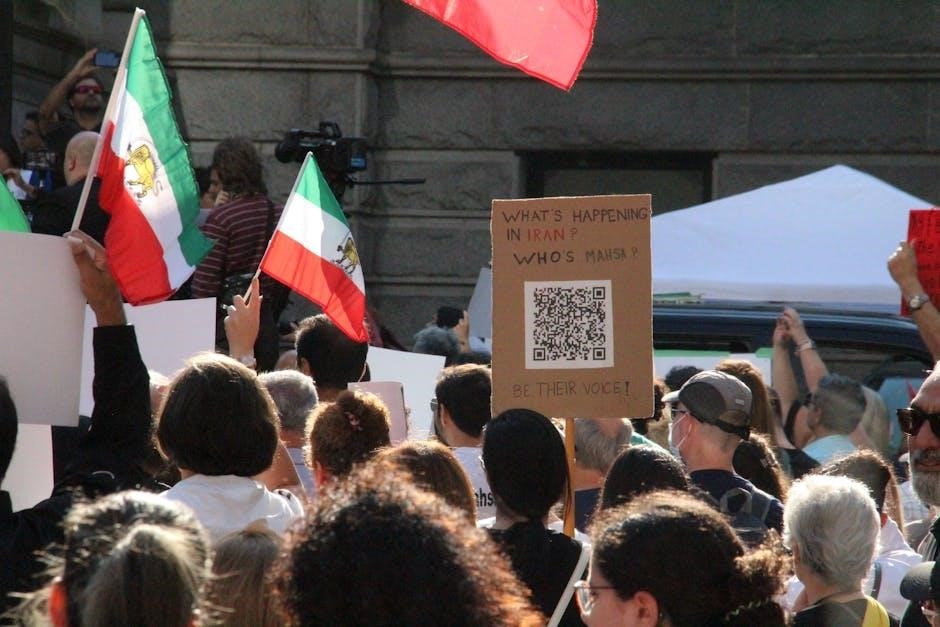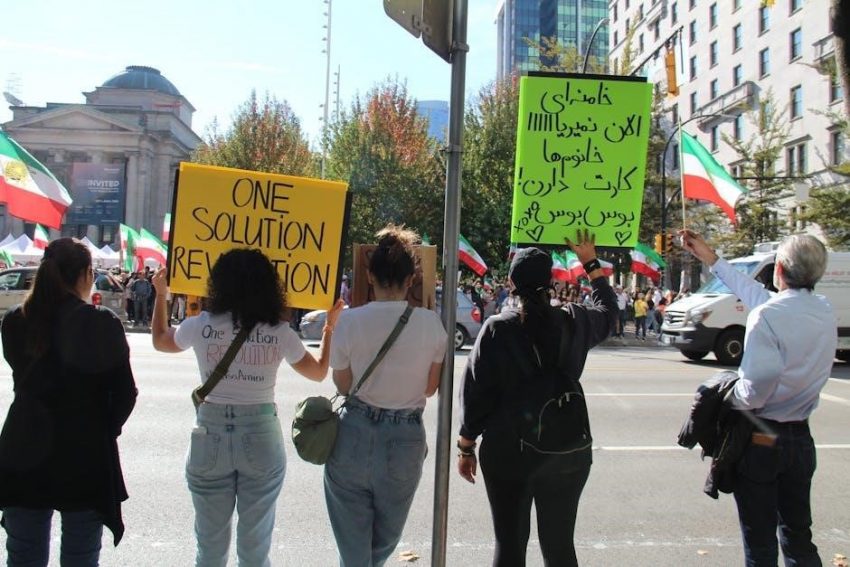The Club of Rome is a global think tank addressing humanity’s most pressing challenges‚ advocating for a sustainable future through interdisciplinary research and collaboration.
1.1 Overview of the Club of Rome
The Club of Rome is a global think tank founded to address pressing challenges facing humanity. It advocates for a sustainable future through interdisciplinary research and collaboration. Established in 1968‚ the club comprises experts from various fields‚ focusing on issues like environmental degradation‚ economic inequality‚ and geopolitical shifts. Its work emphasizes long-term solutions for global stability and prosperity‚ as highlighted in publications like The First Global Revolution.
1.2 Mission and Objectives
The Club of Rome’s mission is to examine global challenges and propose solutions for a sustainable future. Its objectives include fostering dialogue‚ conducting research‚ and inspiring action on critical issues like environmental degradation‚ economic inequality‚ and geopolitical instability. By addressing these‚ the Club aims to promote global solidarity and long-term prosperity for all humanity.
Background and Publication of the Book
The First Global Revolution‚ by Alexander King and Bertrand Schneider‚ was published in 1991 by Pantheon Books as a report by the Club of Rome.
2.1 Authors: Alexander King and Bertrand Schneider
Alexander King and Bertrand Schneider‚ renowned experts‚ co-authored The First Global Revolution. King‚ President Emeritus of the Club of Rome‚ and Schneider‚ its Secretary General‚ leveraged their deep insights into global challenges to address critical issues like energy‚ the arms race‚ and cultural identity‚ providing a comprehensive analysis of humanity’s pressing problems.
2.2 Publication Details
The First Global Revolution was published in 1991 by Pantheon Books‚ spanning 292 pages. Authored by Alexander King and Bertrand Schneider‚ it provides a detailed analysis of global challenges‚ offering insights into energy‚ the arms race‚ and cultural identity. The book is available as a PDF‚ ensuring accessibility for global readers seeking solutions to humanity’s pressing issues.
Main Themes of the Book
The book explores transitioning to a civil economy‚ addressing environmental challenges‚ and understanding geopolitical shifts‚ offering insights into global solidarity and sustainable solutions for humanity’s future.
3.1 Transition to a Civil Economy
The book emphasizes the urgent need to shift from a military-driven economy to a civil-oriented one‚ focusing on sustainable development and global solidarity; This transition aims to redirect resources toward education‚ healthcare‚ and environmental protection‚ fostering long-term prosperity and equity. It highlights the importance of collaboration to address global challenges effectively.
3.2 Environmental Challenges
The book highlights the critical environmental challenges facing humanity‚ including resource depletion‚ climate change‚ and ecological degradation. It underscores the need for sustainable practices and global cooperation to address these issues. The authors emphasize the importance of transitioning to renewable energy sources and adopting policies that prioritize environmental protection to ensure a viable future for all.
3.3 Geopolitical Shifts
The book examines significant geopolitical shifts‚ including the rise of new economic powers and evolving international relations. It addresses how globalization and resource competition reshape global dynamics‚ emphasizing the need for international cooperation to navigate these changes effectively and ensure stability in an increasingly interconnected world.
Authors’ Contributions to Global Issues
Alexander King and Bertrand Schneider’s work in “The First Global Revolution” addresses critical global challenges‚ offering insights into energy crises‚ geopolitical shifts‚ and the need for solidarity.
Their collaborative approach provides a comprehensive analysis of global problems‚ advocating for sustainable solutions and emphasizing the importance of international cooperation to address humanity’s pressing issues effectively.
4.1 Alexander King’s Expertise
Alexander King‚ a renowned scientist and President Emeritus of the Club of Rome‚ brought deep expertise in global issues‚ particularly energy crises and environmental challenges. His work emphasized the urgent need for a transition to a civil economy and sustainable practices; King’s insights in “The First Global Revolution” highlighted the importance of long-term thinking and global solidarity to address humanity’s critical challenges effectively.
4.2 Bertrand Schneider’s Insights
Bertrand Schneider‚ as Secretary General of the Club of Rome‚ provided critical insights into global challenges‚ emphasizing the need for solidarity and sustainable solutions. In “The First Global Revolution‚” he highlighted the transition from a military to a civil economy and the importance of addressing energy crises and cultural identity. His work underscored the urgency of global cooperation for long-term stability.
Structure and Content of the Book
The book is organized into two parts‚ addressing global challenges like energy crises‚ cultural identity‚ and the transition to a civil economy‚ offering solutions for a sustainable future.
5.1 Organization of Chapters
The book is divided into two main parts‚ with chapters addressing global challenges such as energy crises‚ military spending‚ and cultural identity. The first part examines significant changes over the past two decades‚ while the second explores solutions for a sustainable future‚ emphasizing the need for global solidarity and cooperation to address these pressing issues effectively.
5.2 Key Sections and Focus Areas
The book delves into transitioning to a civil economy‚ environmental challenges‚ and geopolitical shifts. It explores energy crises and sustainable solutions‚ while emphasizing the need to reduce military spending. Cultural identity and globalization are also key focus areas‚ highlighting the impact on societies and the importance of preserving diversity. These sections collectively advocate for global unity and sustainable development.

Key Arguments and Vision
The book advocates transitioning to a civil economy‚ addressing environmental and geopolitical shifts‚ while emphasizing the need for global solidarity and sustainable development.
6.1 The Need for Global Solidarity
The book emphasizes the necessity of global solidarity to address shared challenges‚ fostering cooperation across nations to achieve sustainable development and environmental stewardship‚ while reducing inequalities and conflicts.
6.2 A New World Order Vision
The book envisions a new world order where global systems prioritize sustainability‚ equity‚ and cooperation‚ transitioning from military-driven economies to civil-focused development‚ addressing environmental crises‚ and fostering geopolitical balance to ensure long-term stability and shared prosperity for all nations and generations.
Impact and Reception
The book significantly influenced global thought‚ sparking debates on sustainability and policy reforms‚ while its vision for a civil economy resonated widely in academic and political circles.
7.1 Initial Reception and Reviews
The book sparked global debates upon release‚ with its themes of energy crises‚ arms race‚ and economic transition resonating widely. Critics praised its bold vision‚ while some found its proposals controversial. The publication was seen as a significant contribution to discussions on sustainability and global governance‚ reflecting the Club of Rome’s commitment to addressing pressing planetary challenges.
7.2 Influence on Policy and Academia
The book significantly influenced global policy discussions‚ particularly on energy and security‚ shaping international debates. Academically‚ it inspired research into sustainable development and global governance‚ becoming a foundational text in environmental and geopolitical studies. Its insights continue to inform scholars and policymakers‚ underscoring the need for integrated approaches to address complex global challenges effectively.
Legacy and Relevance Today
The book’s insights remain relevant‚ influencing modern discussions on sustainability and global governance‚ ensuring its enduring impact as a foundational text for addressing contemporary challenges.
8.1 Continued Influence in the 21st Century
The ideas presented in The First Global Revolution continue to resonate‚ shaping modern discussions on sustainability‚ energy‚ and global governance. Its emphasis on transitioning to a civil economy and addressing environmental challenges remains a cornerstone for addressing contemporary issues‚ ensuring its relevance in guiding global policies and academic discourse today.
8.2 Relevance to Current Global Challenges
The book remains highly relevant‚ addressing contemporary issues like energy crises‚ environmental degradation‚ and geopolitical tensions. Its focus on transitioning to a civil economy and global solidarity aligns with today’s challenges‚ offering insights into sustainable solutions and the need for international cooperation to tackle pressing global problems effectively.

The Role of Energy in the Book
The book highlights the critical role of energy in global stability‚ emphasizing the need for sustainable solutions to address energy crises and ensure a secure future.
9.1 Energy Crises and Solutions
The book addresses energy crises‚ such as the 1972 oil crisis‚ and their impact on global stability. It advocates for transitioning to renewable energy sources and reducing consumption. The authors suggest reallocating resources from military spending to fund sustainable energy initiatives. Global cooperation is emphasized to tackle these challenges effectively and ensure a secure energy future.
9.2 Sustainable Energy Futures
The book envisions a future powered by renewable energy‚ emphasizing the need for global solidarity to achieve this transition. It advocates for reallocating resources from military spending to sustainable energy initiatives‚ ensuring equitable access worldwide. This shift is seen as crucial for mitigating environmental challenges and fostering long-term peace and prosperity on a global scale.
The Arms Race and Its Implications
The arms race exacerbates global instability‚ diverting resources from sustainable development. The book calls for reducing military spending to address environmental crises and promote global cooperation.
10.1 Historical Context of the Arms Race
The arms race traces its roots to the Cold War era‚ with nations engaging in a relentless buildup of military capabilities. This escalation‚ fueled by geopolitical tensions‚ diverted vast resources from social and environmental needs. The book highlights how this historical trajectory has perpetuated global instability‚ underscoring the urgent need for a shift toward sustainable development and international cooperation to address pressing global challenges effectively.
10.2 Reducing Military Spending
The book emphasizes the necessity of reducing military spending to redirect resources toward addressing global challenges like poverty‚ environmental degradation‚ and inequality. By advocating for a shift from a military to a civil economy‚ the authors highlight the potential to foster sustainable development and global solidarity. This approach aligns with the Club of Rome’s vision of achieving long-term peace and prosperity through cooperation and resource reallocation.

Cultural Identity and Globalization
Globalization poses challenges to cultural identity‚ emphasizing the need to preserve diversity amid homogenization‚ fostering a balance between unity and the uniqueness of cultures worldwide.
11.1 Impact of Globalization on Cultures
Globalization has led to cultural homogenization‚ threatening local traditions and identities. It fosters interconnectedness but risks eroding unique cultural practices‚ creating tension between modernization and preservation of heritage.
11.2 Preserving Cultural Diversity
Preserving cultural diversity requires global solidarity and proactive measures. Education‚ community initiatives‚ and policy support are essential to protect heritage while embracing progress. Local traditions must be valued alongside modernization to ensure a rich‚ inclusive global culture.

Global Solidarity and Cooperation
Global solidarity is crucial for addressing shared challenges‚ fostering cooperation‚ and creating a unified response to crises‚ ensuring collective progress and stability worldwide.
12.1 The Importance of Unity
The book emphasizes the need for global solidarity‚ highlighting unity as essential for addressing shared challenges. It advocates for a transition from military to civil economies‚ stressing cooperation to tackle energy crises and geopolitical shifts. Unity fosters collective action‚ ensuring sustainable solutions and equitable progress‚ aligning with the Club of Rome’s vision of a harmonious global society.
12.2 Mechanisms for Global Cooperation
The book proposes international agreements‚ policy dialogues‚ and collaborative platforms to foster unity. It emphasizes shared goals like sustainable energy and reducing military spending‚ urging nations to prioritize collective action. These mechanisms aim to address global challenges effectively‚ ensuring equitable progress and long-term stability for all societies worldwide.

Case Studies and Examples
The book examines historical and modern examples‚ including the Near East’s social fabric changes and modern applications of its theories‚ illustrating global challenges and solutions.
13.1 Historical Case Studies
The book explores historical examples‚ such as the 1972 oil crisis‚ which highlighted global instability. It examines the long-term continuity of large-scale states and empires‚ focusing on their impact on the Near East’s social fabric and cultural identity‚ providing insights into humanity’s recurring challenges and the need for solidarity and cooperative solutions to global crises.
13.2 Modern Applications of the Book’s Theories
The book’s theories remain relevant today‚ addressing contemporary issues like climate change and geopolitical instability. Its emphasis on transitioning to a civil economy aligns with modern sustainability goals. The call for global solidarity resonates in efforts to combat inequality and environmental degradation‚ offering frameworks for multilateral cooperation and actionable policies to navigate today’s complex global challenges effectively.

Changes in Social Fabric
The book explores how large-scale states and empires have historically reshaped social structures‚ addressing inequalities and cultural identity shifts caused by globalization and industrialization.
14.1 Effects on Social Structures
The book examines how large-scale states and empires historically alter social fabrics‚ causing inequalities and cultural shifts. It highlights the impact of globalization and industrialization on societal cohesion‚ emphasizing the need for equitable transitions to maintain stability and address disparities effectively.
14.2 Addressing Social Inequalities
The book emphasizes the need for equitable resource distribution and sustainable solutions to bridge societal divides. It advocates reducing military spending to allocate resources toward education‚ healthcare‚ and economic opportunities‚ fostering global solidarity to address disparities and promote inclusive development.
Long-term Continuity of Large-scale States
The book examines the historical persistence of large-scale states and empires‚ analyzing their impact on social structures and inequalities‚ while addressing the challenges of globalization.
15.1 Historical Perspectives
The book examines historical perspectives on the longevity of large-scale states‚ tracing patterns of stability and collapse across empires. It highlights how transitions‚ such as shifting from military to civil economies‚ have influenced social structures. The authors explore resource allocation and inequality‚ providing insights into the enduring challenges of maintaining large-scale governance while addressing global disparities and cultural shifts.
15.2 Future Implications
The book underscores the importance of transitioning to a civil economy and sustainable energy solutions to address future challenges. It emphasizes reducing military spending to foster global solidarity and equity; These solutions aim to create a stable‚ equitable global system‚ ensuring long-term continuity of large-scale states while addressing social inequalities and promoting sustainable development.
The book emphasizes the urgent need for global solidarity‚ sustainable solutions‚ and a shift from military to civil economies to address humanity’s pressing challenges effectively.
16.1 Summary of Key Points
The First Global Revolution highlights the need for humanity to address pressing challenges like environmental degradation‚ energy crises‚ and geopolitical instability. It emphasizes transitioning from a military to a civil economy‚ reducing arms spending‚ and fostering global solidarity. The book also explores cultural identity‚ globalization’s impact‚ and the importance of sustainable solutions to ensure a viable future for all societies worldwide.
16.2 Final Thoughts and Recommendations
The First Global Revolution calls for urgent global solidarity to address interconnected challenges like environmental degradation and geopolitical instability. It advocates transitioning to a civil economy‚ reducing military spending‚ and embracing sustainable energy solutions. The book urges policymakers and individuals to prioritize long-term thinking and cooperation to ensure a stable and equitable future for all societies worldwide.
